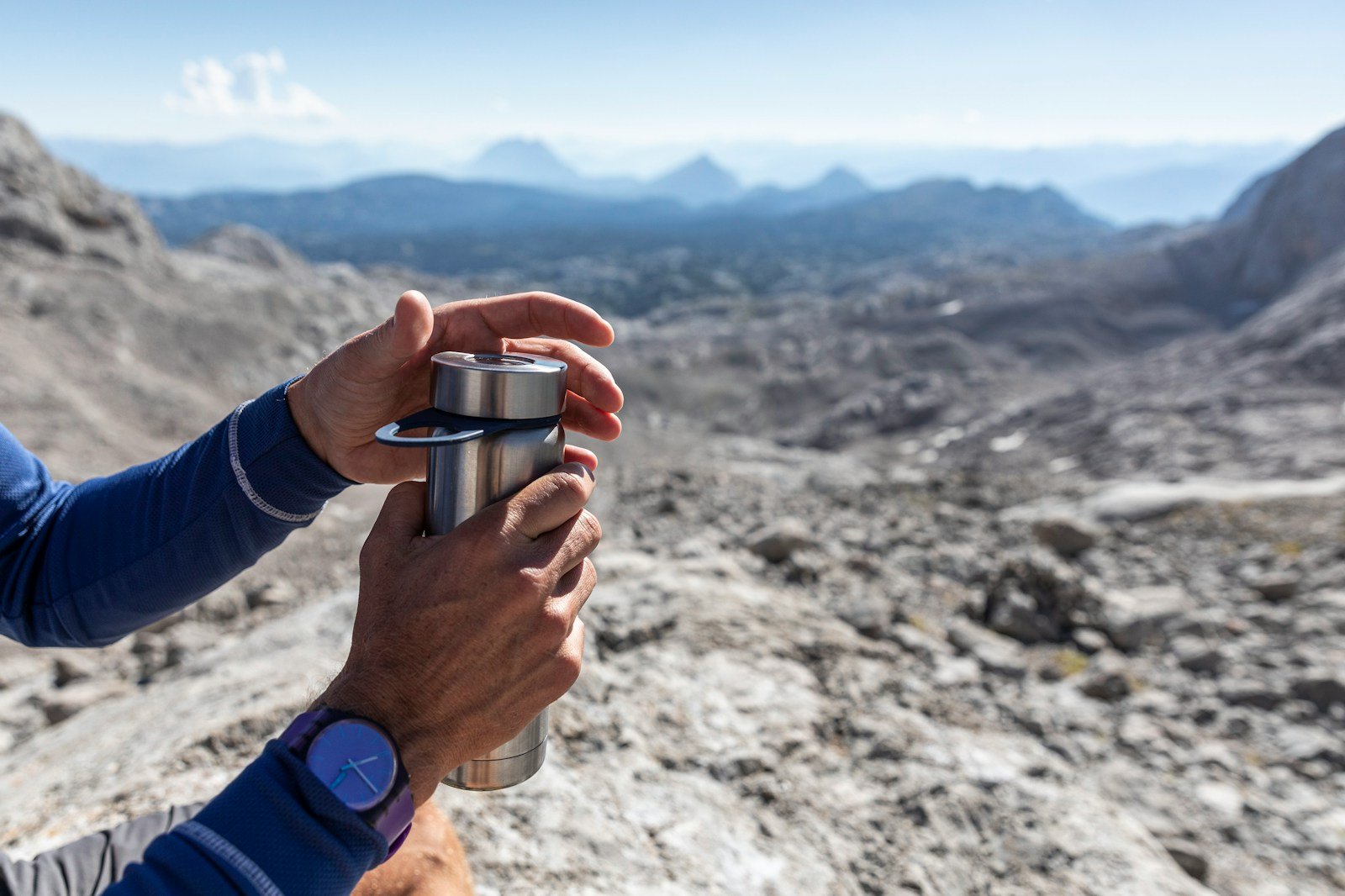Table of Contents
- Introduction
- The Importance of Hydration for Athletes
- Hydration and Exercise Performance
- Hydration and Recovery
- Signs and Symptoms of Dehydration
- Effective Hydration Strategies
- Additional Resources and Further Reading
- Practical Tips and Actionable Advice
- Conclusion
Introduction
For athletes and fitness enthusiasts, hydration is a critical factor that can significantly impact exercise performance and recovery. Proper hydration ensures that the body functions optimally during physical activity, enabling individuals to push their limits and achieve their fitness goals.
According to a study published in the Journal of the American College of Nutrition, even mild dehydration (1-2% body weight loss) can impair exercise performance, cognitive function, and overall well-being. This underscores the importance of maintaining proper hydration levels for optimal athletic performance and recovery.
The Importance of Hydration for Athletes
Adequate hydration is essential for athletes for several reasons:
-
Thermoregulation
During exercise, the body generates heat, and sweating is the primary mechanism for cooling. Proper hydration supports this process, allowing the body to dissipate heat effectively and prevent overheating.
-
Cardiovascular Function
Dehydration can lead to a decrease in blood volume, which can strain the cardiovascular system and reduce oxygen delivery to working muscles, ultimately impairing exercise performance.
-
Muscle Function
Muscles require adequate hydration to function properly during exercise. Dehydration can lead to muscle fatigue, cramps, and reduced strength and endurance.
-
Cognitive Performance
Dehydration can impair cognitive functions such as reaction time, decision-making, and concentration, which are crucial for optimal athletic performance.
Hydration and Exercise Performance
Numerous studies have demonstrated the significant impact of hydration on exercise performance:
-
Endurance Performance
In a study published in the British Journal of Sports Medicine, dehydration levels of 2% or more were found to impair endurance performance, specifically in activities lasting longer than 90 minutes.
-
Strength and Power
Research published in the Journal of Strength and Conditioning Research showed that dehydration levels of 3-4% can reduce muscle strength and power output by up to 10%.
-
High-Intensity Exercise
A study in the Journal of Applied Physiology found that dehydration can impair performance in high-intensity, intermittent exercise, such as team sports or high-intensity interval training (HIIT).
Hydration and Recovery
Proper hydration is not only crucial during exercise but also plays a vital role in the recovery process:
-
Muscle Repair and Growth
Adequate hydration supports the delivery of nutrients and oxygen to muscles, facilitating repair and growth after strenuous exercise.
-
Removal of Metabolic Waste
Water helps flush out metabolic waste products, such as lactic acid and other byproducts, that can accumulate during exercise and contribute to muscle soreness and fatigue.
-
Joint and Tissue Health
Proper hydration supports the lubrication of joints and the health of connective tissues, reducing the risk of injury and aiding in recovery after intense workouts.
Signs and Symptoms of Dehydration
It’s essential to recognize the signs and symptoms of dehydration to take appropriate measures and prevent further complications. Common indicators of dehydration include:
- Thirst
- Dry mouth and throat
- Headache
- Fatigue and weakness
- Dizziness or lightheadedness
- Dark yellow or amber-colored urine
In more severe cases, dehydration can lead to muscle cramps, nausea, and even heat-related illnesses like heat exhaustion or heat stroke.
Effective Hydration Strategies
To maintain optimal hydration levels for exercise performance and recovery, it’s essential to implement effective hydration strategies:
-
Pre-Exercise Hydration
Drink plenty of fluids (water, sports drinks, or electrolyte beverages) in the hours leading up to exercise to ensure you start in a well-hydrated state.
-
Hydration During Exercise
Consume fluids regularly during exercise, especially during prolonged or intense activities. The American College of Sports Medicine recommends drinking 0.5-0.7 liters of fluid for every hour of exercise.
-
Post-Exercise Hydration
Replenish fluids and electrolytes lost through sweat after exercise. The amount of fluid needed for post-exercise rehydration depends on the intensity and duration of the activity, as well as individual sweat rates.
-
Monitor Your Hydration Status
Pay attention to signs of dehydration, such as urine color, thirst, and changes in body weight. Weighing yourself before and after exercise can help estimate fluid losses and guide your hydration needs.
-
Hydration for Different Environments
Adjust your hydration strategy based on environmental conditions. In hot and humid environments, you may need to increase fluid intake to compensate for increased sweat rates.
It’s important to note that individual hydration needs can vary based on factors such as age, gender, fitness level, and acclimation to the environment.
Additional Resources and Further Reading
If you’re interested in learning more about hydration and its role in exercise performance and recovery, here are some recommended resources:
-
Books
- “Waterlogged: The Serious Problem of Overhydration in Endurance Sports” by Tim Noakes, M.D.
- “The Hydration Handbook” by Gary Beevers
-
Online Resources
-
Questions and Answers
-
Is it possible to overhydrate?
Yes, overhydration (also known as water intoxication) can occur when an individual consumes excessive amounts of water or other fluids, leading to a dilution of electrolytes in the body. This can be dangerous and potentially life-threatening in extreme cases.
-
Are sports drinks better than water for hydration?
Sports drinks can be beneficial for hydration during prolonged or intense exercise, as they provide both fluid and electrolytes (sodium, potassium, etc.) lost through sweat. However, for shorter or lower-intensity activities, water may be sufficient.
-
Can caffeine affect hydration levels?
Yes, caffeine has a mild diuretic effect, which can increase fluid losses through urine. However, for most individuals, moderate caffeine intake is unlikely to significantly impact hydration during exercise if adequate fluid intake is maintained.
-
Practical Tips and Actionable Advice
-
Invest in a Reusable Water Bottle
Carry a reusable water bottle with you throughout the day and during exercise sessions. This will encourage you to drink more water and reduce plastic waste.
-
Track Your Hydration
Use a hydration tracking app or monitor your urine color to assess your hydration status. Aim for pale yellow or straw-colored urine as an indicator of adequate hydration.
-
Plan Your Hydration Strategy
Before a long or intense workout, plan your hydration strategy. Consider factors such as the duration, intensity, and environmental conditions, and prepare accordingly with appropriate fluids and electrolyte replenishment.
-
Experiment with Different Hydration Sources
Try different hydration sources, such as water, sports drinks, coconut water, or electrolyte tablets, to find what works best for your body and personal preferences.
-
Stay Hydrated Throughout the Day
Don’t wait until you’re thirsty or exercising to hydrate. Make hydration a daily habit by drinking water regularly throughout the day, especially during warmer months or periods of increased physical activity.
Conclusion
Maintaining proper hydration is crucial for optimal exercise performance and recovery. Adequate fluid intake ensures that the body can function efficiently during physical activity, dissipate heat effectively, and support muscle function, cardiovascular health, and cognitive performance.
By implementing effective hydration strategies before, during, and after exercise, athletes and fitness enthusiasts can enhance their performance, reduce the risk of dehydration-related complications, and support their overall health and well-being.
Remember, hydration needs are individual and can be influenced by various factors, including age, gender, fitness level, and environmental conditions. Stay mindful of your hydration status, listen to your body, and make adjustments as needed to ensure you’re properly hydrated for your fitness journey.


Leave a Reply